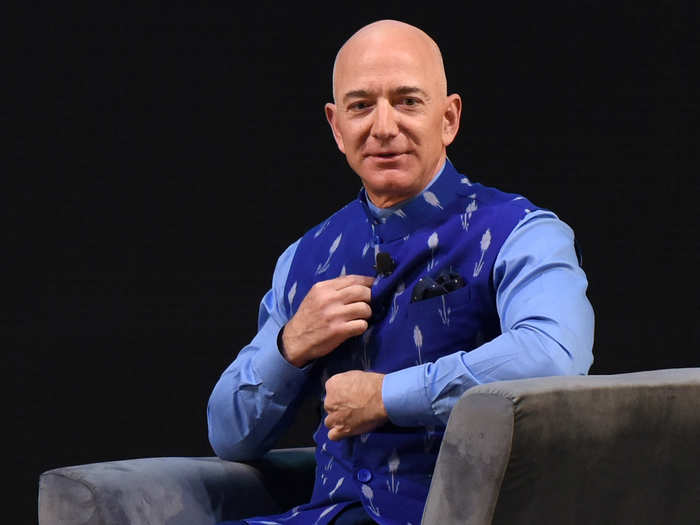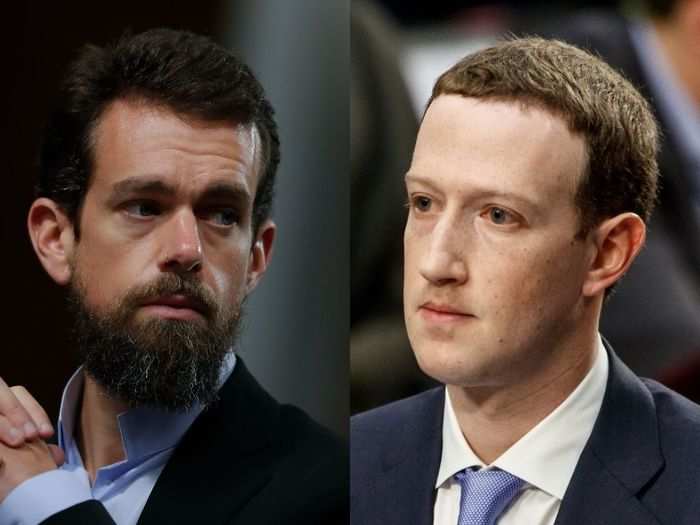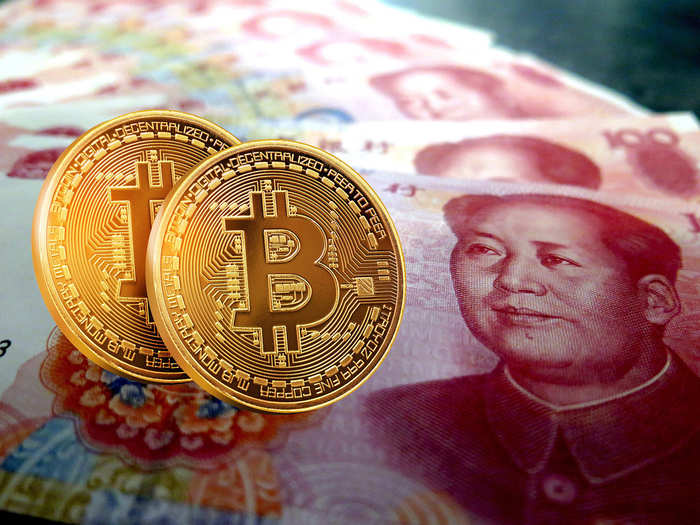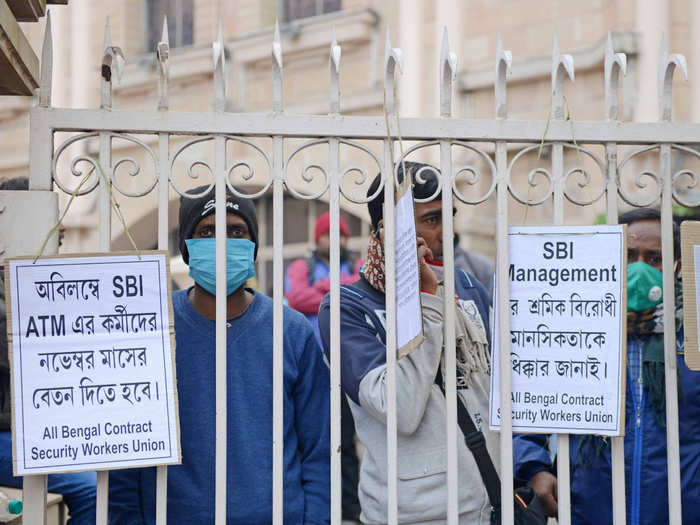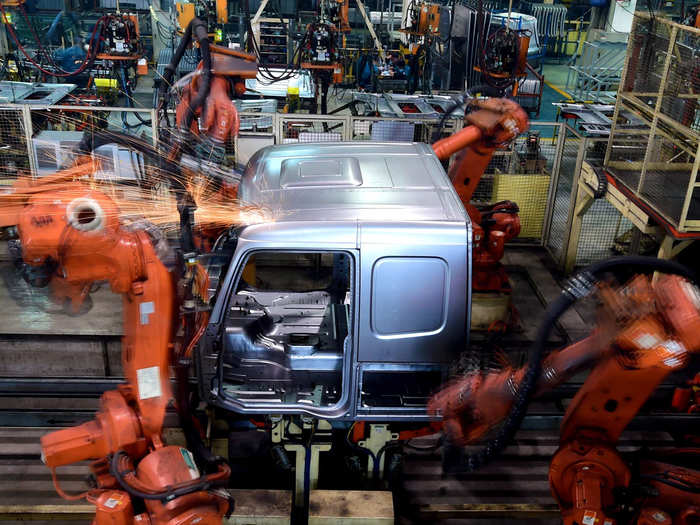Ten of the most 'outrageous' predictions for 2021, according to Saxo Bank Unsplash
- The year 2020 has been a whirlwind, and 2021 may not be very different if the outrageous predictions proposed by the Saxo Group turn real in the new year.
- The economic unrest during the COVID-19 pandemic has highlighted the inequality in societies and could lead to major policy changes like the realisation of Universal Basic Income (UBI) in 2021.
- The past year also saw increased scrutiny of technology companies, which may lead to Amazon ‘buying’ Cyprus as it hunts for better tax breaks.
The year 2020 has left most investors reeling and the public feeling uncertain about what 2021 may hold.
As the New Year draws closer, the Saxo Group has some outrageous predictions about what may unfold in the new year — from Germany having to bail out France to the success of the COVID-19 vaccine killing off companies and blockchain technology killing the fake news industry.
It even predicts that Universal Basic Income (UBI) may finally become a reality but will result in a real estate crisis in big cities.
Saxo’s 2021 prediction also proposes the emergence of a Citizens Technology Fund to compensate those who may lose their jobs due to technology to keep society from falling apart at the seams.
In the report, Saxo Bank breaks down predictions of ‘unlikely but underappreciated events’ that could send shockwaves across financial markets, if they were to occur.
From the best case scenarios to the worst, here are ten of the most outrageous predictions for 2021:
Amazon ‘buys’ Cyprus — showdown of the tech monopolies
Amazon CEO Jeff Bezos BCCL
As scrutiny from regulators bears on Amazon, the e-commerce giant will shift its headquarters to the European nation of Cyprus, according to the Saxo Group. Cyprus, in turn, will welcome Amazon and the tax revenue it promises to bring.
With a GDP of $24 billion, the Cyprus economy is worth less than three months of Amazon’s non-US revenue.
However, as the year rolls on, consultants from the Jeff Bezos-owned enterprise will want to ‘help’ rewrite Cyprus’ tax code to mimic Ireland’s laws — but with bigger tax breaks.
The celebration will likely be short-lived as the European Union regulators catch onto Amazon’s game plan forcing it to change its practices and bringing all the countries within its gambit under a common tax regime.
It’s not just Europe, but the US and other countries around the world are also tightening the grip around companies like Amazon, Facebook, Google, Microsoft, and others.
What should investors do: Short monopoly tech companies, especially Amazon.
Germany bails out France
(L-R) European Council President Charles Michel, German Chancellor Angela Merkel and French President Emmanuel Macron IANS
France was already in trouble before the COVID-19 pandemic with public debt at nearly 100% of the GDP and private debt at around 140%.
In the face of a health disaster three months into 2020, the emergency response only added to the worsening crisis.
According to the Saxo Group, private and public debt are at the risk of increasing by another 20% in 2021, which will leave France will have no option but to go ‘begging cap in hand’ to Germany.
Without Germany’s help, France won’t be able to bail its banking system, which could lead to a systemic collapse of its whole economy.
What should investors do: Probably safer to buy the French banks after the bailout than selling them before, but both might be possible.
Blockchain technology kills the fake news industry
Twitter CEO Jack Dorsey and Facebook CEO Mark Zuckerberg IANS/BI India
Fake news is the pandemic of the online world. The spread of disinformation is accelerating with algorithms favouring engagement, which leads readers to more ‘attention grabbing’ headlines — a nicer way of saying ‘click bait’ — and weighing in the favour of biased publications and blogs.
While Twitter, Facebook, Google, and others have thus far battled the issue with their platform policies, the Saxo Group believes that blockchain technology is what will ultimately bring about the end of fake news.
“Tackling this trend, companies like Verizon and IBM are developing technologies to counter fake news with verification using a blockchain network,” it said in its report.
As the pressure to tackle disinformation continues to mount in 2021, companies like Twitter and Facebook will invest heavily in blockchain technology — motivated first and foremost by self-preservation rather than by public welfare.
“Reality wins, and echo chambers lose,” notes the Saxo Group’s prediction.
What should investors do: Buy Verizon, IBM, and social media companies.
China’s new digital currency inspires a tectonic shift in capital flows
China is testing its own digital currency PIxabay
China’s central bank, the People’s Bank of China, announced that it’s testing an advanced digital currency in October 2020 — a digital version of the Yuan. Currently, the government wants to use this currency to improve the efficacy of its monetary and fiscal policies while also promoting a cashless society and financial inclusiveness.
The Saxo Group predicts that the next logical step would be for the central bank to use this digital currency to open its capital account, which is currently severely restricted.
Allowing foreign parties full access to Chinese capital markets during the digital currency will allay the primary barrier of concern — using the Yuan from trade and investment. The built-in traceability of oversight provided by blockchain technology would bring the risk of capital flight or illegal transfers down to near-zero.
But since the currency is still government-sponsored, it won’t be as attractive as its decentralised counterparts like Bitcoin.
“Opening up China’s capital account and creating a currency that rivals the US dollar for reserve status will help boost Chinese consumption, fund an entirely new Chinese pension system and deepen the country’s capital markets,” said the report.
What should investors do: Short the US dollar and overweight Chinese government bonds and equities versus the rest of the world.
Humans master fusion energy ending global food, water and energy crisis
Power Grid at seawater desalination plant at Nemmeli, just outside of Chennai BCCL
Harnessing new kinds of energy has irrefutably been at the heart of human progress since the discovery of fire.
In 2020, the SPARC fusion reaction design from the Massachusetts Institute of Technology (MIT) was validated as a viable path to harnessing pocket-friendly fusion energy. Come 2021, an advanced AI algorithm may solve the super nonlinear complexities of plasma physics, massively improving the SPARC reactor.
Massive investment from public and private sectors will pour in to would allow the implementation of the new fusion design within a few short years.
The mastery of fusion energy can create a world without water or food scarcity. Transportation would be cheap. And, the current generation may be last to work by ‘necessity.’
Fusion energy would also curb carbon dioxide emissions upgrading the world, while also delivering the largest upgrade in living standards ever witnessed.
What should investors do: The political and investment winds favouring ‘traditional’ green energy stop blowing, and the wind energy ETF FAN falls by 50% in 2021.
Universal basic income decimates big cities
State Bank of India (SBI) workers on strike against contractual wages in December 2020 IANS
Unemployment blew up in most countries during the COVID-19 crisis. And, the K-shaped recovery has only accelerated the inequality that was tearing at the fabric of society prior to the pandemic.
“The risk that societies are entirely torn apart results in the realisation that the Covid-19 measures to supplement lost wages weren’t a mere panic response, but the start of a permanent new universal basic income (UBI) reality,” the Saxo Group predicts.
UBI would lead to a rebalancing of the forces and structures within society. In the past, big cities have been the chief drivers of job growth for generations. However, in the UBI-era, where technology has replaced redundant tasks and work from home is the new normal, the demand for real estate in big cities will plummet.
Commercial office property values will be crushed — including restaurants and shops aimed at the ‘working man’.
The next generation will be more likely to stay in the communities where they grew up. Those who are already in the big cities are more likely to leave as location-specific job opportunities dry up, and the appeal of living in a tiny, expensive apartment dies out.
What should investors do: Short big city real estate developers.
Disruption Dividend creates Citizens Technology Fund
Robots manufacturing cars in a Chinese factory IANS
As technology continues to replace human jobs, the inequality and polarisation of labour markets will further be exemplified. According to the Saxo Group, the world will have to find a new way to manage this crisis in order to avoid political upheavals and social unrest.
This implies a major overhaul of existing policies. The outrageous prediction is that a Citizens Technology Fund will eventually be created to transfer a portion of asset ownership of capital assets to the general public, with an extra slice of the pie going to those displaced by the Information Age. The Saxo Group calls this payout, the Disruption Dividend.
“The Disruption Dividend frees up enormous entrepreneurial energy at the individual and community scale as millions have more time and energy on their hands away from repetitive and stressful jobs. More meaningful work in community restoration, artisanal crafts and food production exploded in popularity,” said the report.
What should investors do: Long companies in education, art, crafts and hobbies. But also in the digital spectrum, virtual reality, gaming and e-sports.
A successful COVID-19 vaccine kills the economy
Dry run of COVID-19 vaccination drive in India BCCL
Everyone is hoping that a successful COVID-19 vaccine will save the world and the economy — but what if that isn’t the case?
According to the Saxo Group, countries applying policies of near-infinite liquidity provision and easing financial conditions at all costs has pushed global sovereign and investment grade
corporate yields to historical lows and forced investors to take positions in riskier assets.
As 2021 gets underway, investors will be left sitting on a pile of low-yielding junk debt with terrible reward-to-risk profiles. Zombie corporates will be teetering on the brink of default, having only survived the pandemic months with handouts and the lower refinancing costs.
As vaccine roll-outs occur across the world, restrictions get removed, and normalcy returns to the economy — it could lead to a sharp spike in inflation.
As inflation rises and unemployment falls at a rapid pace, corporate defaults will increase to their highest in years, with the most over-levered companies — brick-and-mortar enterprises who were already struggling before the pandemic — being the first ones out the door.
“For the first time in economic history, a strong recovery sees rising defaults,” said the report.
What should investors do: Short high yield corporate ETFs.
Silver gets more expensive, and solar panels come into vogue
Solar panels installed atop buildings in the National Capital Region (NCR)-Delhi, India BCCL
Silver isn’t just a precious metal. It also has industrial applications — like the photovoltaic cells used in the production of solar panels.
With green initiatives taking a life of their own in 2021, the rapid increase in the demand for silver will lead to a jump in prices, according to the Saxo Group.
“In fact, a real silver supply crunch is on the cards in 2021, and it frustrates the full throttle political support for solar energy investments under a Biden presidency, the European Green Deal, and China’s 2060 carbon neutral goal, among other initiatives,” said the report.
What should investors do: Long silver as the price races to an all-time high of $50 per ounce in 2021.
Next-generation technology supercharges frontier and emerging markets
60 Starlink satellites stacked together before deployment on 24 May 2019 Wikimedia
2021 will be the ‘Eureka’ moment for investors looking at technology to create a boost in emerging and frontier markets around the world. And, the explosion of technology depends on three trends.
First is the arrival of satellite-based internet delivery systems, which will make it cheaper for the masses to access the internet. More area will be covered and the likelihood of servers crashing will be minimal resulting in exponential cost advantages, according to the Saxo Group.
SpaceX’s Starlink will likely be the first runner to offer such services, with as many as 1,500 satellites operational by the end of 2021.
What should investors do: Long emerging market currencies on superior growth outlook.

